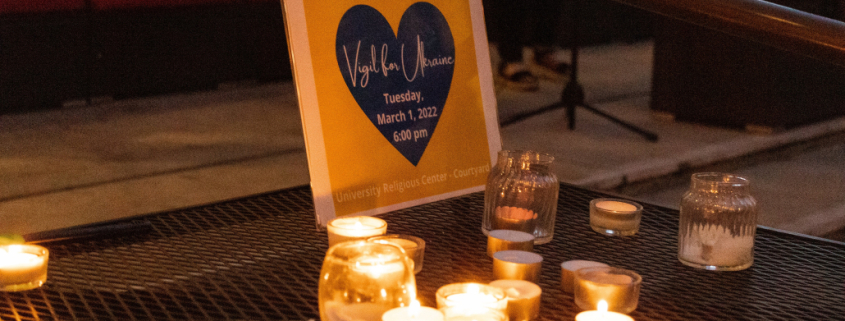USC reacts to six months of Ukraine war

Russia began its invasion of Ukraine 207 days ago. Since then, the invasion has become a protracted conflict, with Russia sustaining heavy losses but occupying swaths of Ukrainian territory in the eastern and southern regions of Ukraine.
This dynamic has changed in the past couple of weeks with Ukraine’s military reclaiming territory and causing thousands of Russian troops to retreat after launching a counteroffensive in the northeastern region of Kharkiv. In just one week, Ukraine has gained more territory from Russia than Russia had been able to during six months of the invasion.
Given the sheer amount of information coming from the war, as well as the tendency of both sides to present information in the best light possible, it can be difficult to figure out what exactly is going on in Ukraine at any point in time, said Robert English, director of the USC School of International Relations and an expert in East European politics.
“It can be difficult to get at the objective truth when everyone’s spinning,” English said. “But the only way to overcome that is to just have more and more sources of information to compare and contrast and over time you will learn what you should discount or what you should recognize as hyperbole or exaggeration. And, therefore, you’re able to put things in a better context than maybe six months or four months ago. It’s an art, learning to sift through and adjust for all the distortions or omissions.”
Professor English also said he believes there are realistic endgames for both Russia and Ukraine.
“For Ukraine, it’s expelling Russia and getting back all or most of its occupied territory,” English said. “For Russia, it’s holding onto that territory. It’s not realistic that Russia could launch new offensives and push all the way to Odessa or resume attacks on Kyiv. That’s not going to happen.”
Back in February, the Daily Trojan spoke with Alex Chouliak, a Ukrainian student and junior majoring in business administration. In a recent interview, she said she has remained optimistic since the beginning of the invasion and is pleased with the support she received from her peers and professors within the USC community.
“I’m glad that the professors are really understanding,” Chouliak said. “Last semester, especially, I had a few professors who really made sure that I knew that they were there for me, so I don’t have any issues with professors. I’m also thankful that I have a lot of friends at USC who understand my situation.”
Maksim Franko, a senior majoring in economics and mathematics, wrote a letter to the editor to the Daily Trojan urging the USC community, and the United States as a whole, to rally behind Ukraine and provide support. Franko also expressed optimism about Ukraine’s ability to successfully fight Russia. Six months later, he said he is pleased with the military aid that the U.S. has provided Ukraine, though he maintains Ukraine still needs continued U.S. support to be successful.
“I think the U.S. has done a lot to help my country win this war, with billions and billions of dollars for military aid,” Franko said. “Without that, I don’t know if we would still be here, because that is a very substantial amount of help. I do think it’s a lot, but it’s not enough. I would still urge people to talk about this and urge their governments to do more.”
Both Chouliak and Franko, however, said they were let down by the University’s response.
“With the administration, I don’t remember the last time I’ve been so disappointed in anything,” Chouliak said. “It’s been slightly over six months, and the only response I’ve gotten so far is them saying that, at the moment, we can’t do anything for you. I mean, the only thing that they’ve offered is mental health services. But, when you’re not sure if you can pay for tuition next semester, that’s not necessarily what’s on your mind.”
Though they can’t predict the war’s end, both Franko and Chouliak look forward to the possibility.
“We all want it to end, so, hopefully, it really is happening,” Franko said.

